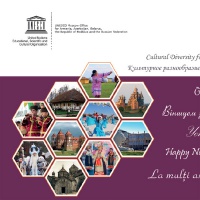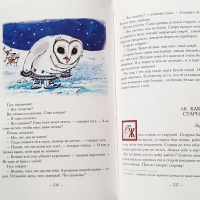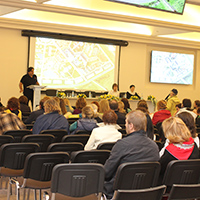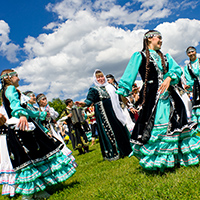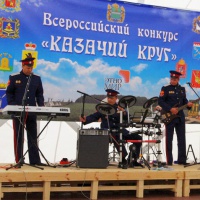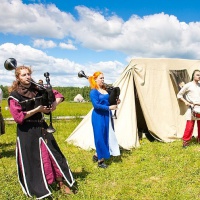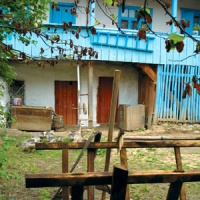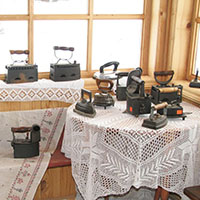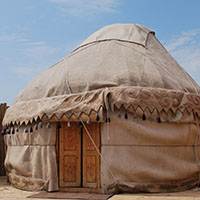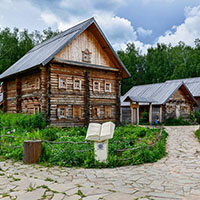Russian Stove Museum
On December 22, 2007 «Dialogue of Cultures - United World» International Public Charity Fund opened the Russian Stove Museum in «ETNOMIR» Cultural and Educational Center as part of the program on the popularization of Slavic cultures.
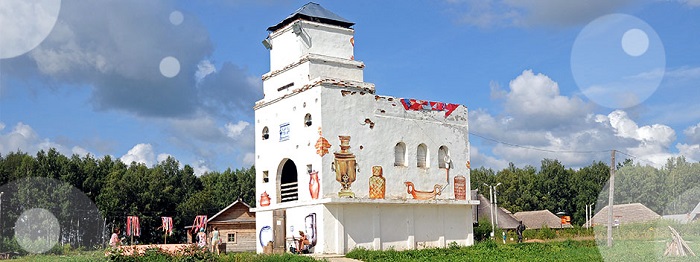
Russian stove had a special place in the life of ancient Slavs. Here people baked bread and cooked food, dried wheat and other supplies for the winter, prepared herbs and roots, cured ailments and took steam bath. Russian stove had an enormous influence on the development of cultural traditions, handicrafts and classical rites of ancient Slavs. The extended interpretation of the concept of «Russian stove» includes not only the stone structure itself designed for cooking food and heating the izba (hut), but many structural elements in the form of wooden shelves, benches and partitions. Despite the huge variety of shapes and forms, uniform building principles form the heart of this ancient construction made of beaten clay or fired brick.
Exposition of the Russian Stove Museum is represented by a single architectural ensemble of old Slavic settlements. It includes the world’s largest Russian stove and nine thematic houses from different regions of the European part of Russia. According to the location of the stove inside the izba (hut), Slavic dwellings are classified into: Northern house, Vologda izba, Ural izba, traditional five-walled house, wattle hut of the southern Black Sea coast, Kostroma izba, Kuban wattle hut, Western-type house and Volga house.
The main items of the museum exhibition are located in special izbas (huts) with stoves of different designs and destination, as well as fully reproduced interior of Slavic izbas of the 19-20th centuries. The world’s largest Russian stove is a huge model, four times the actual size of the original stove. Due to the unusual construction solution, you can easily go inside the structure to examine the design features in detail and get acquainted with the operation principle of the legendary stove. Since spring of 2014, delicious cakes are baked here according to the Slavic recipes. The izbas also exhibit ancient irons, vintage quilts and children’s toys made of wood.
Guided tours and thematic workshops are held in the territory of the ethnographic yard every day. Musical holiday programs, art performances, folk games and festivities are organized on holidays in front of the Russian stove.

